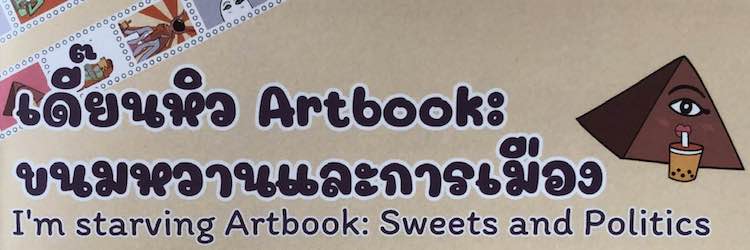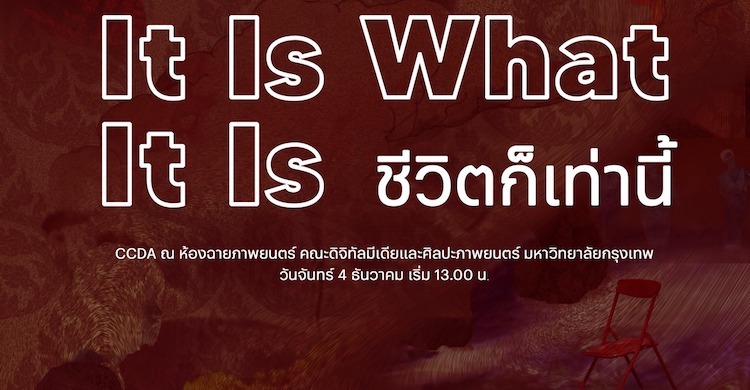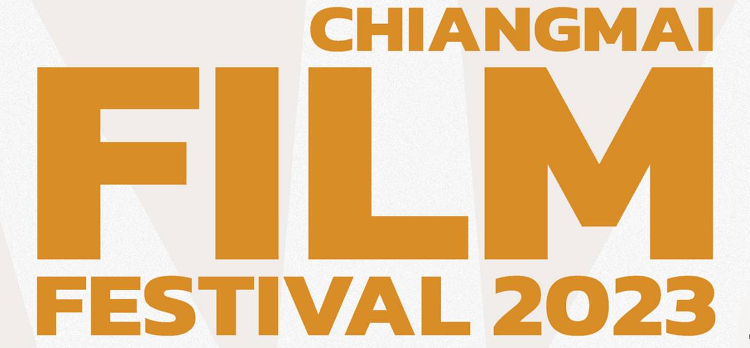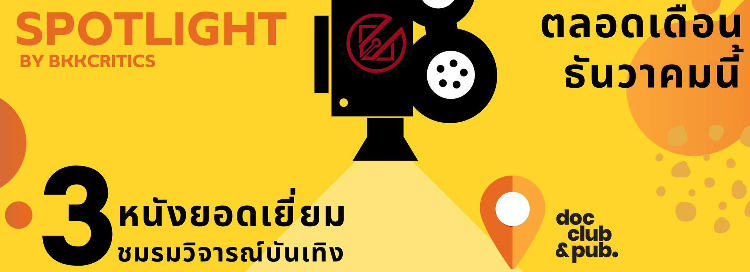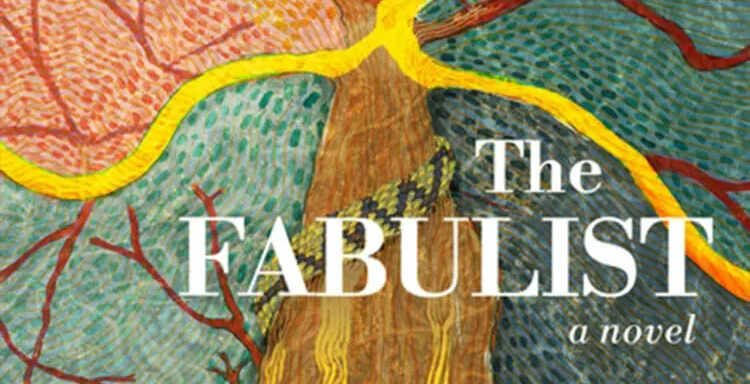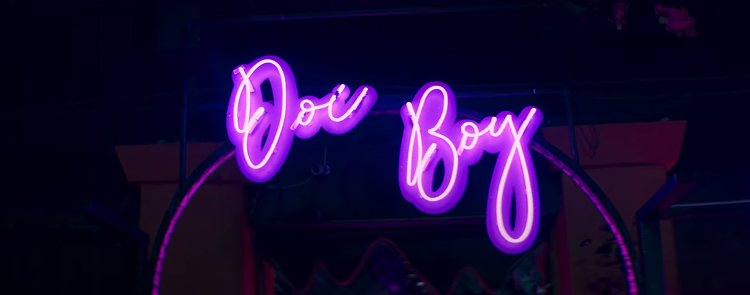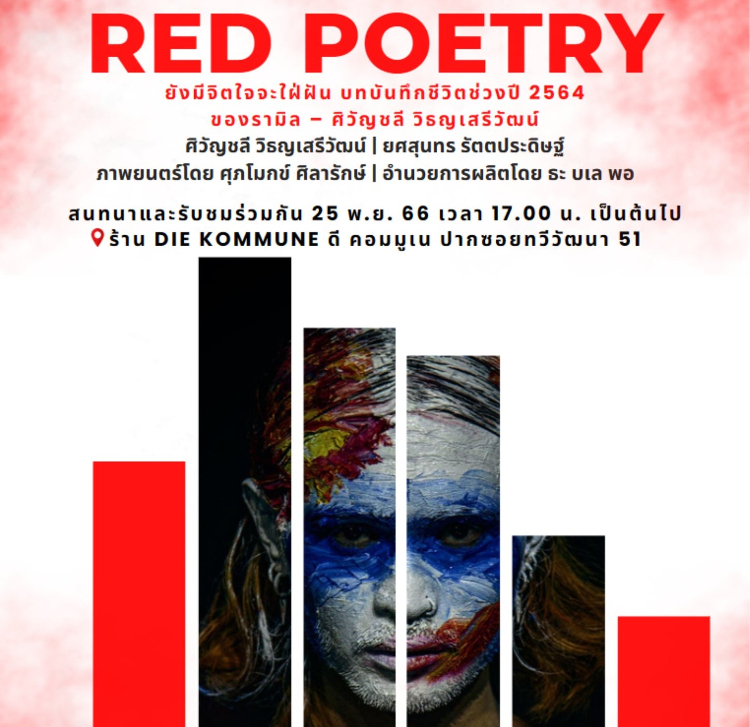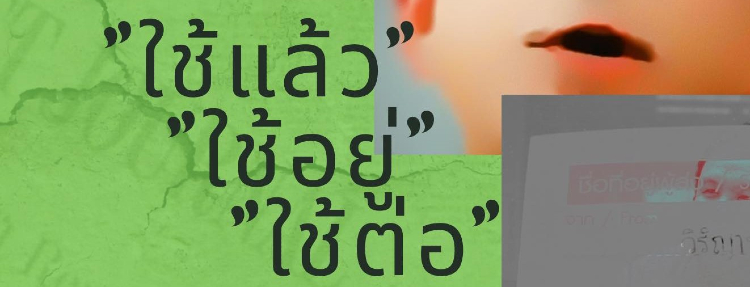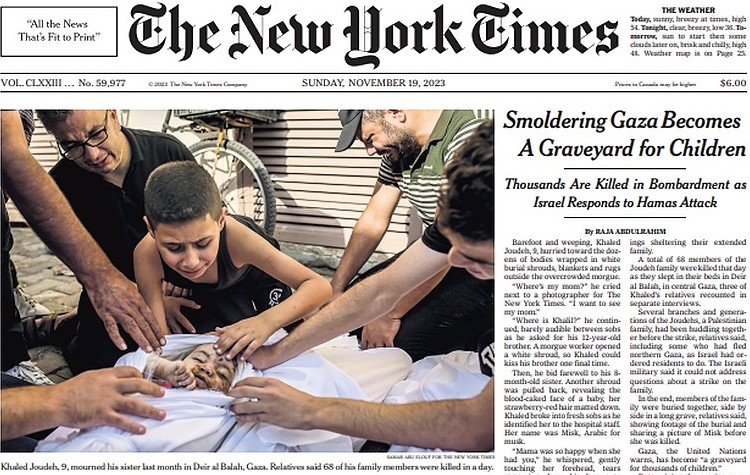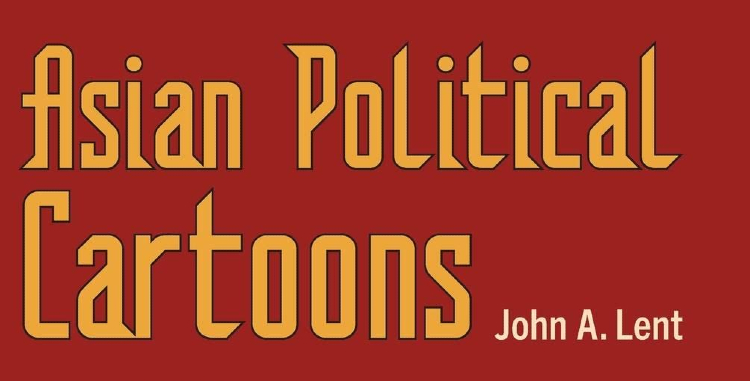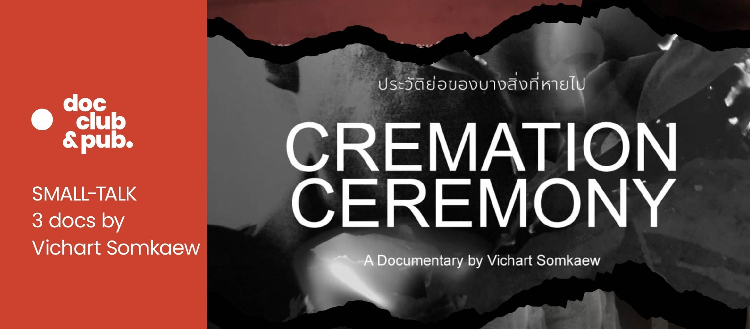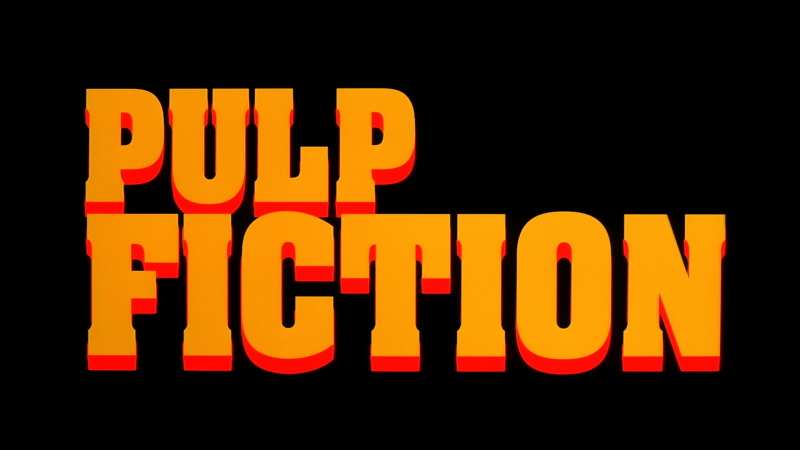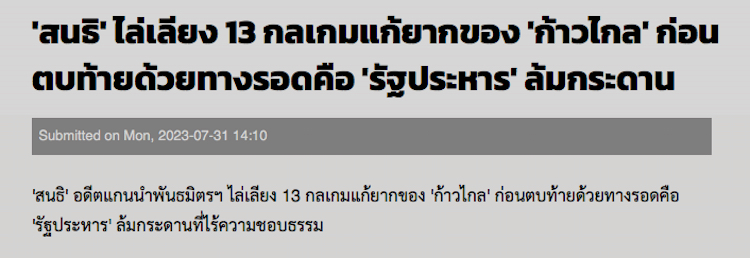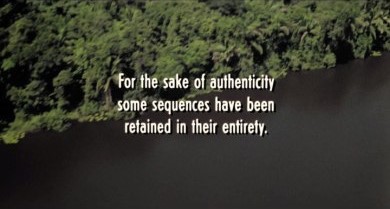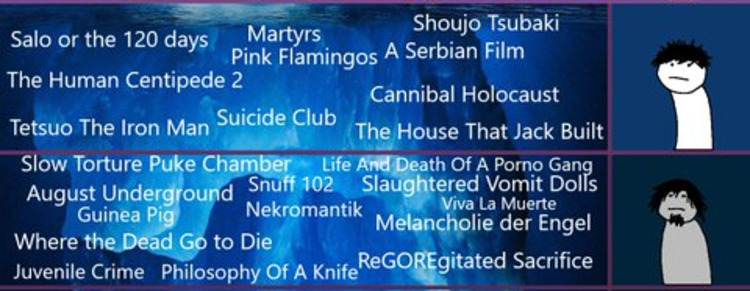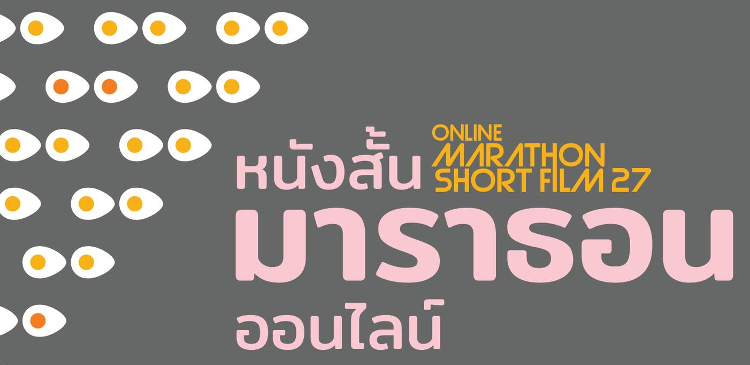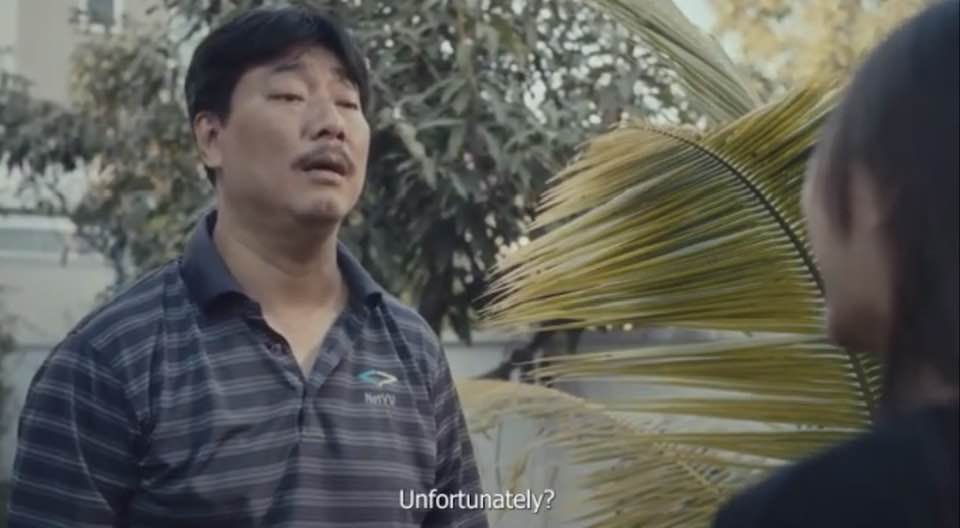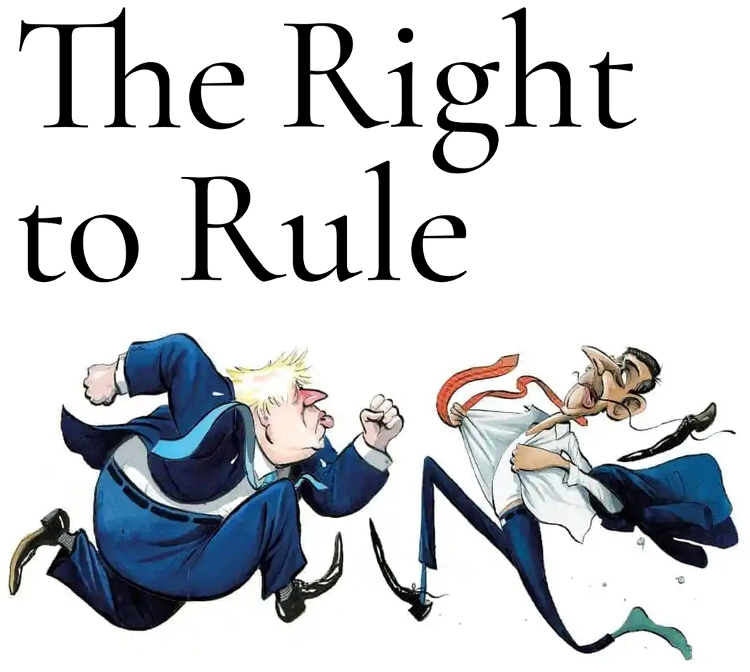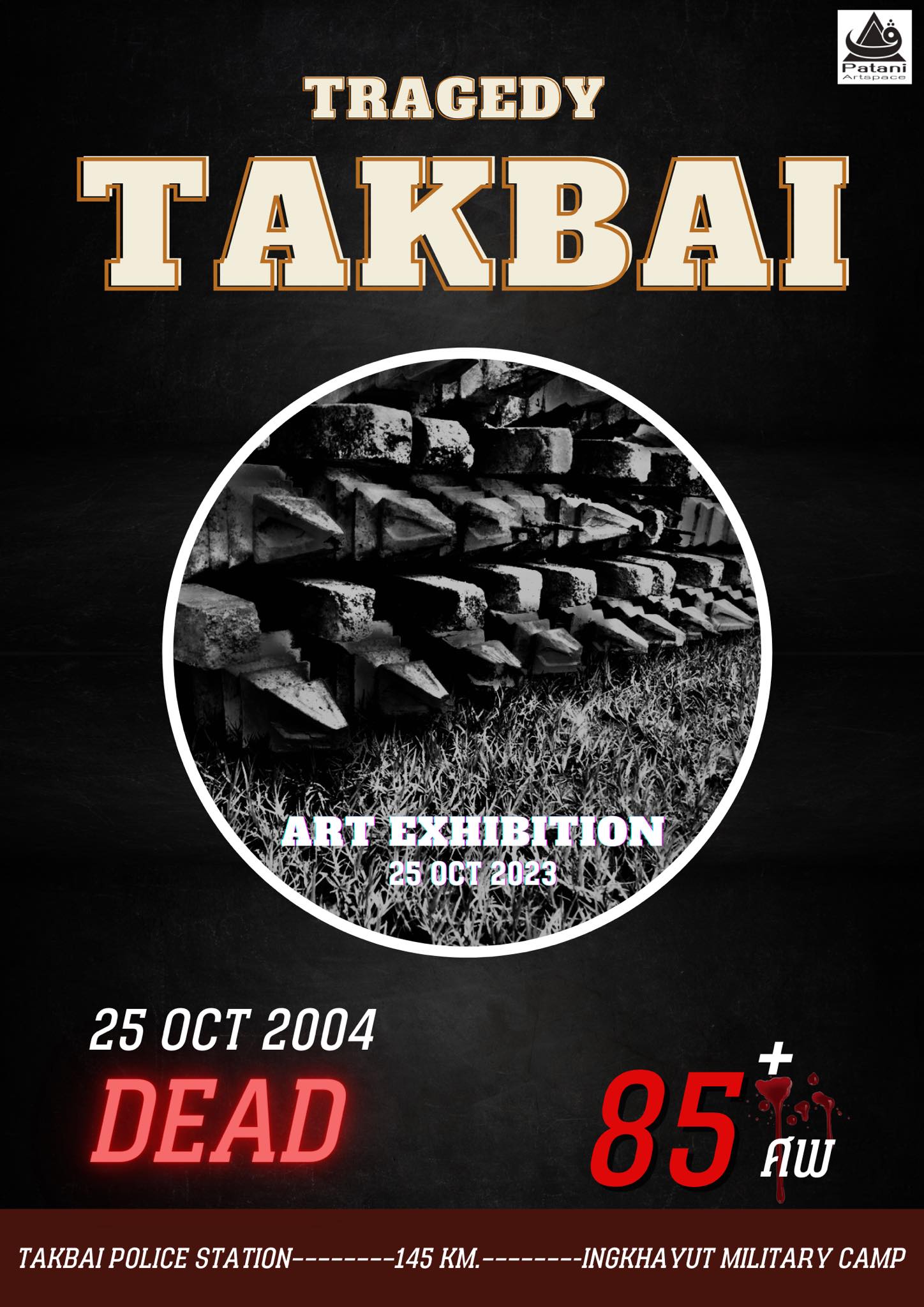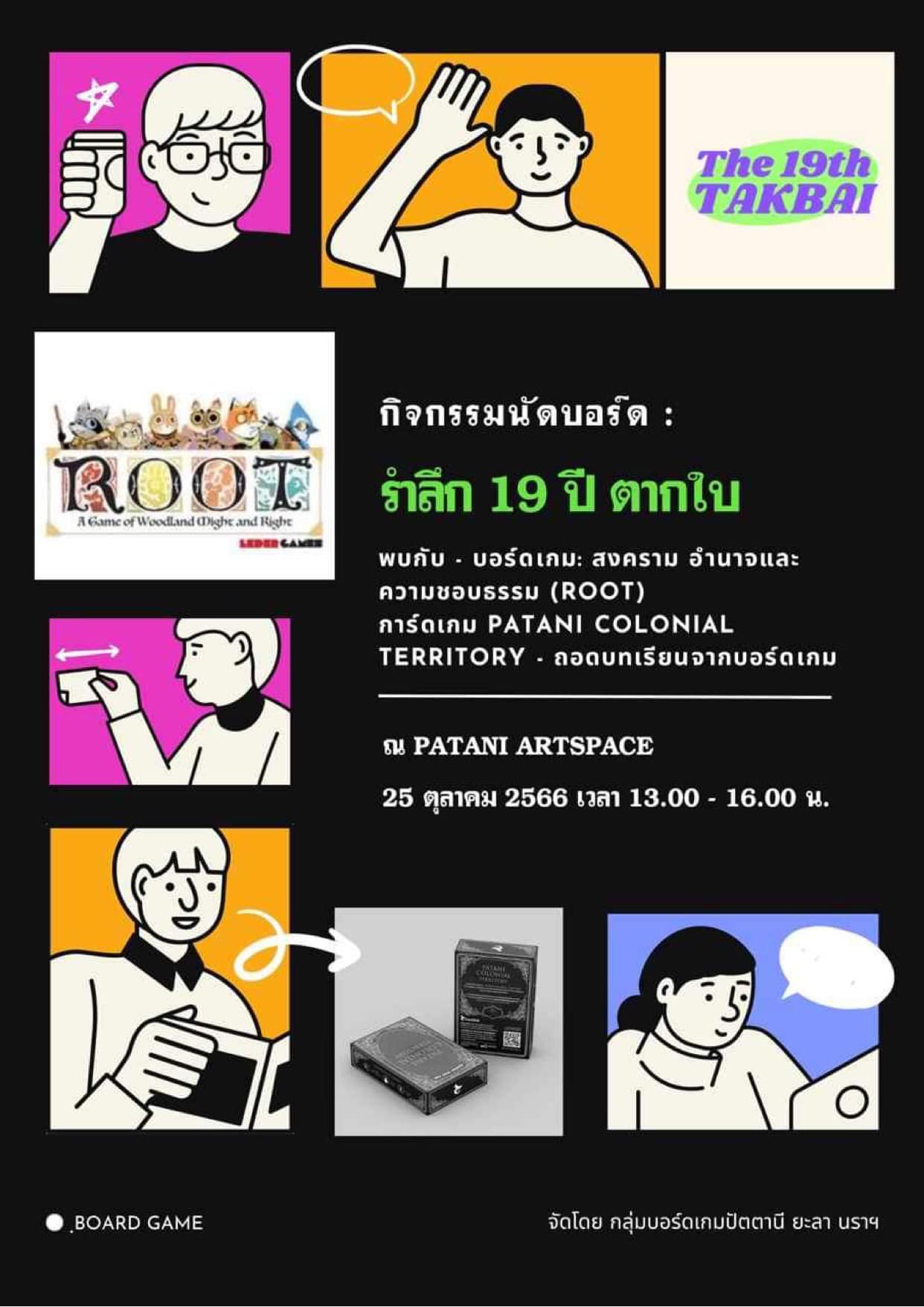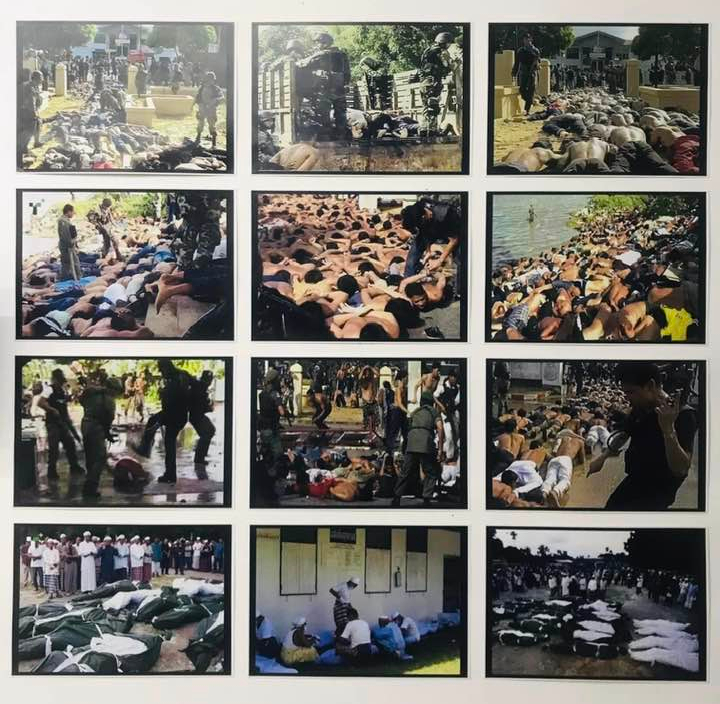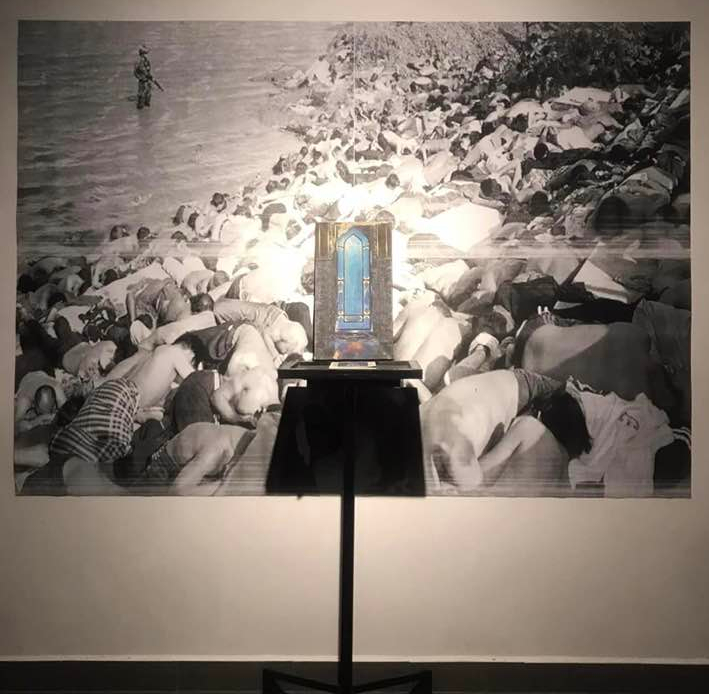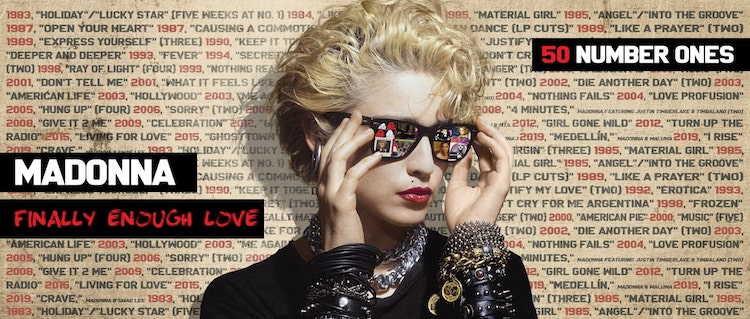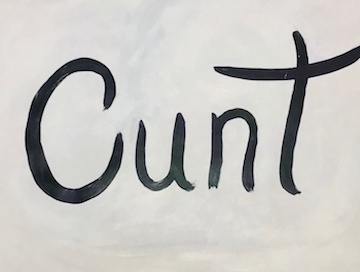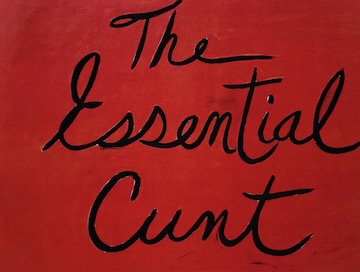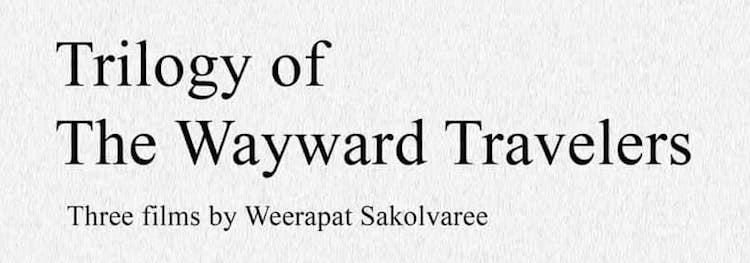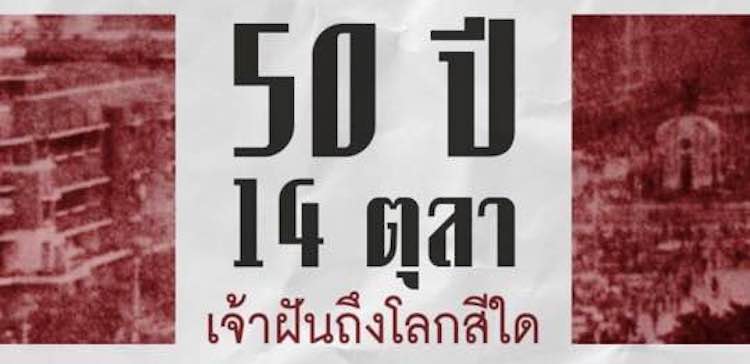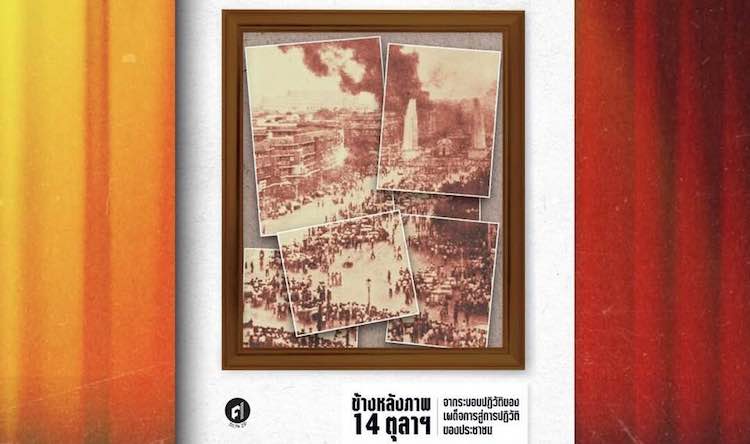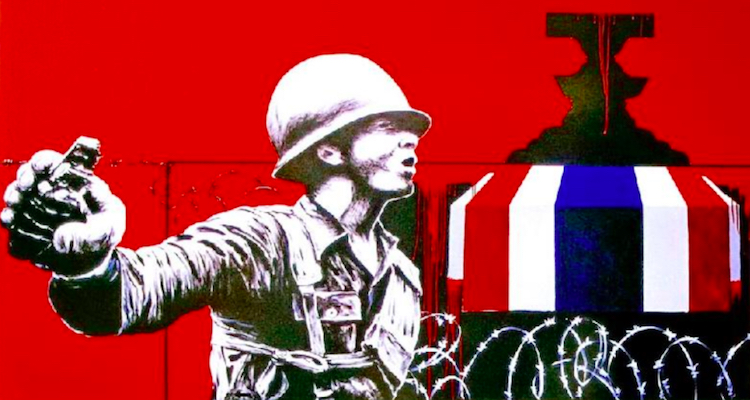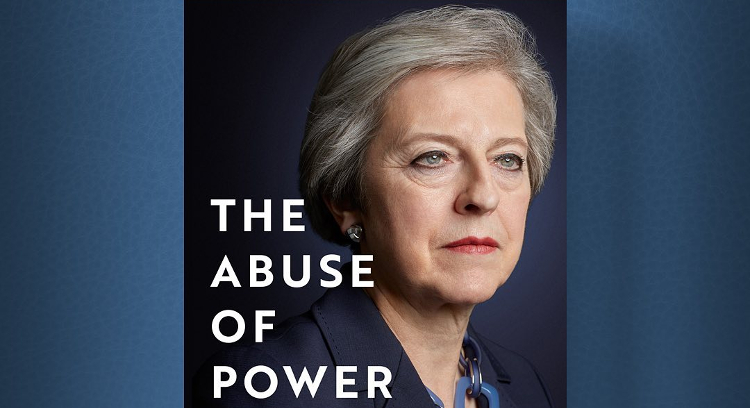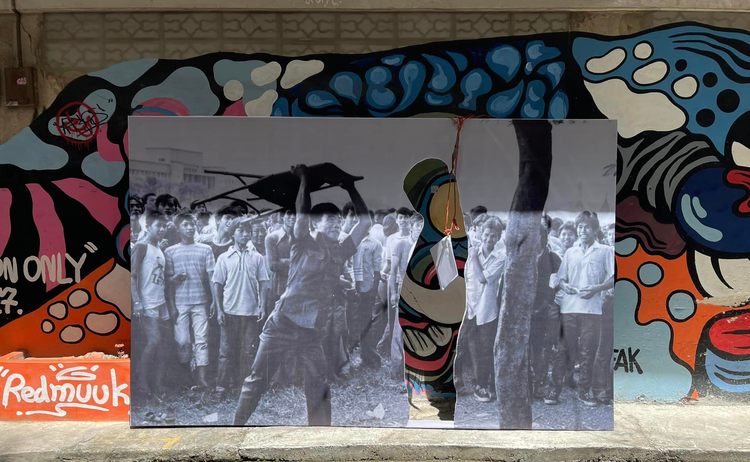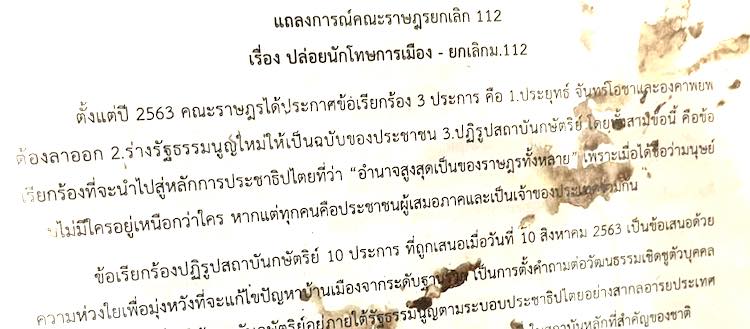Manit Sriwanichpoom’s exhibition
Landscape of Unity the Indivisible (ทิวทัศน์แห่งความเป็นหนึ่งอันมิอาจแบ่งแยก) opens tomorrow at Galerie Oasis in Bangkok, and runs until 29th January next year. Manit has enlarged press photographs of two notorious instances of state violence in southern Thailand that took place in 2004: the massacre of insurgents at Krue Se Mosque, and the suffocation of protesters at Tak Bai. The artist has
painted over areas of the photographs with red, white, and blue paint, representing the colours of Thailand’s flag, though the dominant colour is red, which also signifies the blood of the victims. The security forces have never been held accountable for either Krue Se or Tak Bai, and the statute of limitations expires next year, giving Manit’s exhibition a sense of urgency.
The Thaksin Shinawatra government prohibited the broadcasting of video footage of the Tak Bai incident. In defiance of the ban,
Same Sky (ฟ้าเดียวกัน) magazine distributed a VCD—ความจริงที่ตากใบ (‘the truth at Tak Bai’)—with
its October–December 2004 issue (vol. 2, no. 4). The footage is also included in Thunska Pansittivorakul’s documentary
This Area Is Under Quarantine (บริเวณนี้อยู่ภายใต้การกักกัน), which led to
the film being banned. (
Thai Cinema Uncensored discusses the censorship of Tak Bai video footage.)
Landscape of Unity the Indivisible is this year’s third exhibition featuring art inspired by Tak Bai, after
รำลึก 19 ปี ตากใบ (‘remembering 19 years of Tak Bai’) and
Heard the Unheard (สดับเสียงเงียบ). Tak Bai photographs were also shown at the
Deep South (ลึกลงไป ใต้ชายแดน) exhibition last year. Apichatpong Weerasethakul’s
Photophobia series also incorporates press photographs of the incident, as does the interactive installation
Black Air by Pimpaka Towira, Akritchalerm Kalayanamitr, Koichi Shimizu, and Jakrawal Nilthamrong.
Jehabdulloh Jehsorhoh’s
Violence in Tak Bai (ความรุนแรงที่ตากใบ) features tombstones marking the graves of each victim, and his book
The Patani Art of Struggle (سني ڤتاني چاراو او سها) shows three versions of the installation in situ. It was first exhibited a few days after the massacre, and the grave markers were accompanied by rifles wrapped in white cloth. In 2017, it was mounted on a plinth containing Pattani soil at the
Patani Semasa (ปาตานี ร่วมสมัย) exhibition.
Two other installations—Jakkhai Siributr’s
78 and Zakariya Amataya’s
Report from a Partitioned Village (รายงานจากหมู่บ้านที่ถูกปิดล้อม)—both feature lists of the Tak Bai victims’ names.
Photophobia,
78, and
Violence in Tak Bai were all included in the
Patani Semasa exhibition. (The
exhibition catalogue gives
Violence in Tak Bai a milder alternative title,
Remember at Tak Bai.)
Patani Semasa also featured Ruangsak Anuwatwimon’s sculpture
No Country Like Home, which incorporates a bullet-ridden tablet from the Krue Se Mosque.


